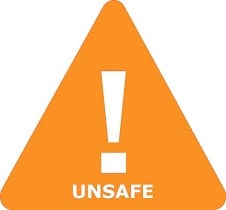Is Goat´s Rue Safe in Breastfeeding
Question
I am a breastfeeding mother and i want to know if it is safe to use Goat´s Rue? Is Goat´s Rue safe for nursing mother and child? Does Goat´s Rue extracts into breast milk? Does Goat´s Rue has any long term or short term side effects on infants? Can Goat´s Rue influence milk supply or can Goat´s Rue decrease milk supply in lactating mothers?
Goat´s Rue lactation summary

- DrLact safety Score for Goat´s Rue is 5 out of 8 which is considered Unsafe as per our analyses.
- A safety Score of 5 indicates that usage of Goat´s Rue may cause serious side effects in breastfed baby.
- Our study of different scientific research indicates that Goat´s Rue may cause moderate to high side effects or may affect milk supply in lactating mother.
- Our suggestion is to use safer alternate options rather than using Goat´s Rue .
- It is recommended to evaluate the advantage of not breastfeeding while using Goat´s Rue Vs not using Goat´s Rue And continue breastfeeding.
- While using Goat´s Rue Its must to monitor child for possible reactions. It is also important to understand that side effects vary largely based on age of breastfed child and time of medication in addition to dosage.
- Score calculated using the DrLact safety Version 1.2 model, this score ranges from 0 to 8 and measures overall safety of drug in lactation. Scores are primarily calculated using publicly available case studies, research papers, other scientific journals and publically available data.
Answer by Dr. Ru: About Goat´s Rue usage in lactation
The aerial parts are consumed. It contains guanidine and galegine. No scientific article has been published which show increase in milk production or decrease in blood sugar levels. It has not been possible to demonstrate greater antioxidant capacity in milk of mothers who have drunk infusions made from this and other plants. The German Health Ministry’s Commission E does not advise its use in humans due to a lack of evidence of its therapeutic value. Two newborns were seriously poisoned after their mothers drank an average of two litres a day of an infusion of licorice, fennel, aniseed and galega (Rosti 1994). This plant is highly toxic for sheep (Puyt 1981). The best galactogogue is frequent on-demand breastfeeding with correct technique (Mannion 2012, ABM 2011). Do not use as a galactogogue without medical supervision. Precautions when taking plant preparations: 1. Ensure that they are from a reliable source: poisoning has occurred due to confusing one plant with another with toxic properties, as well as poisoning from heavy metals extracted from the ground and food poisoning due to contamination with bacteria or fungi. 2. Do not take in large amounts; follow recommendations from professional experts in phytotherapy. "Natural" products are not always good in any quantity: plants contain active substances from which much of our traditional pharmacopoeia has been obtained and can result in poisoning or act as endocrine disruptors if taken in excessive amounts or time periods.
Alternate Drugs for Phytotherapy, Systemic Use
Chasteberry(Unsafe)
Chamomile(Safe)
Echinacea(Low Risk)
Alfalfa(Unsafe)
Dong Quai(Low Risk)
Cranberry(Safe)
Licorice(Unsafe)
Rhubarb(Low Risk)
Lavender(Low Risk)
Sweet Briar(Safe)
Barberry(Dangerous)
Carob(Safe)
Common Poppy(Unsafe)
Angelica(Unsafe)
Star Anise(Dangerous)
Mugwort(Unsafe)
Edible Burdock(Low Risk)
Box(Unsafe)
Boldo(Unsafe)
Bromelains(Safe)
Calaguala(Safe)
Caralluma(Low Risk)
Carrageen(Low Risk)
Horse Chestnut(Safe)
Blue-Cohosh(Dangerous)
Indian Pennywort(Safe)
Squisandra(Low Risk)
Prickly Pear(Safe)
Black-Cohosh(Unsafe)
Horsetail(Unsafe)
Colocynth Pulp(Dangerous)
Ergot Fungus(Dangerous)
Ephedra(Unsafe)
Steviol(Safe)
Eucalyptus(Unsafe)
Eyebright(Safe)
Flowers(Low Risk)
Fucus(Unsafe)
Bearberry(Unsafe)
Guarana(Low Risk)
Devil’s Claw Root(Low Risk)
Herniary(Low Risk)
St. John´s Wort(Safe)
Hyssop(Unsafe)
Syrup Of Ipecac(Low Risk)
Jin Bu Huan(Dangerous)
Kava Kava(Dangerous)
Clubmoss(Unsafe)
Maca(Safe)
Common gromwell(Unsafe)
Nux Vomica(Dangerous)
White Nettle(Safe)
Papain(Low Risk)
Passion Flower(Low Risk)
African Cherry(Dangerous)
Scots Pine(Unsafe)
Pycnogenol(Safe)
Pennyroyal(Unsafe)
Primrose(Safe)
Radish(Safe)
Ironwort(Low Risk)
Liquorice(Unsafe)
Rooibos(Safe)
Rose Hip(Safe)
French rose(Safe)
Butcher´s Broom(Safe)
Willow(Safe)
Soy(Low Risk)
Herbal Teas(Low Risk)
Rock Tea(Low Risk)
Lime Flower(Safe)
Tormentil(Safe)
Meadow-Sweet(Low Risk)
Golden Rod(Safe)
Sarsaparilla(Low Risk)
Sweet Flag(Unsafe)
Saw palmetto(Low Risk)
Common gum cistus(Low Risk)
Cat's Claw(Low Risk)
Milk Vetch(Low Risk)
Chinese angelica(Low Risk)
White Mulberry(Low Risk)
Di Huang(Low Risk)
Zi Wan(Unsafe)
Dang Shen(Low Risk)
Reishi(Low Risk)
glycyrrhizic acid(Unsafe)
Glycyrrhizin(Unsafe)
American cranberry(Safe)
Carrageenan(Low Risk)
Carrageenin(Low Risk)
Verbena officinalis(Low Risk)
Passion Vine(Low Risk)
Chaste Tree(Unsafe)
Sweet Cane(Unsafe)
Sweet root(Unsafe)
Irish Moss(Low Risk)
Bromelain(Safe)
Bromelin(Safe)
Acorus calamus(Unsafe)
